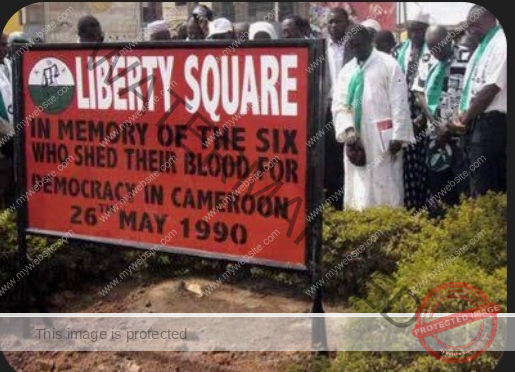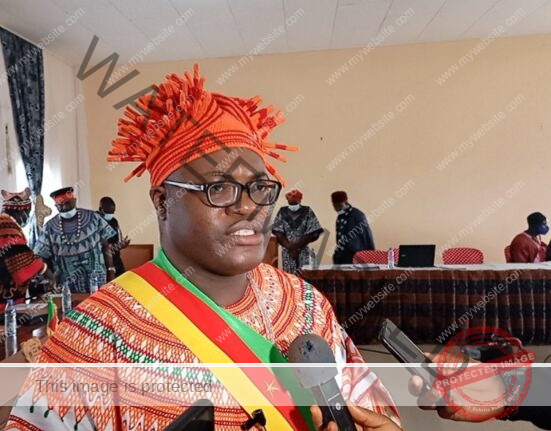In the West, the trend of gray divorce has been rising, meanwhile in Africa, it’s still considered a taboo.
By The Independentist Editorial desk.
Divorce after 50—what’s now called “gray divorce”—is becoming more common across Africa, including in places like Nigeria, Kenya, South Africa, and even Ambazonia. For many years, older African couples were expected to stay together “till death do us part,” no matter how unhappy they were. But times are changing.
This article looks at why gray divorce is rising, how it affects families and communities, and how polygamy, war, and shifting values are shaping this quiet transformation—especially in African and Ambazonian societies.
Gray divorce refers to when older couples—usually aged 50 and above—end their marriage. In the West, this trend has been rising for decades. In Africa, it’s still considered taboo in many communities. But more and more people are now walking away from long marriages that no longer serve them.
Many couples stay together for the sake of their children. Once the children are grown and gone, the couple often realizes they’ve drifted apart. With better education, exposure, and financial independence, more women—especially in cities and the diaspora—no longer feel trapped in unhappy marriages. Years of emotional neglect, abuse, infidelity, or lack of communication often catch up with couples in later life. Some finally decide to put their own happiness first. Today’s world celebrates individual well-being. Social media, counseling, and support networks are giving older Africans the courage to start over.
Polygamy—where a man has multiple wives—is still practiced in many African societies. But it adds complexity to gray divorces. First wives, often married young, may feel ignored or disrespected as their husbands marry younger women. In later years, jealousy and division among co-wives or between children of different mothers can erupt. Some women in polygamous settings walk away silently after years of mistreatment, especially once they gain support from grown children or relatives abroad. In some cases, men seek divorce from older wives to remarry or “upgrade,” causing emotional trauma and financial insecurity for women who gave decades to the marriage. Polygamy, while culturally accepted in some places, often leaves aging women without legal protection or property rights—making them more vulnerable after divorce.
Even if they’re grown, children can feel confused, betrayed, or divided when parents separate. Family holidays and inheritance issues become complicated. In traditional marriages, many women gave up education or careers to raise families. After divorce, they may have no property, savings, or pension. Without strong legal rights, many older women fall into poverty. Men often lose their closest emotional companion in divorce. Without strong community or emotional outlets, many suffer from depression, loneliness, and health decline. Gray divorce can spark family conflict—especially over land and property. In many African traditions, older men hold property in trust for the family. Divorce may divide the estate, causing tension among siblings and relatives.
In Ambazonia (Southern Cameroons), nine years of armed conflict, displacement, and exile have deeply affected families. Many marriages have collapsed under the weight of war, migration, and trauma. Women who fled to refugee camps or the diaspora often raise children alone and sometimes choose divorce after years of neglect or abandonment. Men still trapped in conflict zones may feel isolated, powerless, and disconnected from family life. Churches and traditional authorities—usually the pillars of marital support—are weakened or absent in war-torn areas. The trauma of displacement has exposed cracks in long-standing marriages. In some cases, divorce is not just a personal choice—it’s a survival strategy. In Ambazonia, gray divorce is not only about love gone cold—it is a symbol of broken systems, lost homes, and a people struggling to rebuild lives with dignity and purpose.
A 2023 study by the Institute of African Family Studies interviewed 50 individuals (ages 50–75) in Lagos who divorced late in life. Here’s what they found: 72 percent of the divorces were initiated by women. Most couples had been married for 25 to 30 years. Many of the women said they were ignored, disrespected, or emotionally abused. Churches offered little support, often urging them to stay “for the sake of the name.” Most men kept assets; many women left with almost nothing. This story mirrors what is quietly happening in cities across Africa and within diaspora communities abroad.
Laws should protect aging spouses—especially women—by ensuring fair division of property and access to pensions or compensation. Churches, mosques, and traditional councils must stop judging divorced elders and instead offer counseling, healing, and reconciliation services. We must talk openly about gray divorce, especially in media, radio, and community events. Understanding reduces shame and encourages solutions. Governments and NGOs can help by offering housing support, emotional counseling, legal aid, and livelihood training for older women.
Gray divorce is real—and it’s rising in both stable cities and fragile states like Ambazonia. While it can bring pain, loneliness, and confusion, it can also open the door to peace, healing, and new purpose. Instead of shaming older people who choose to leave unhappy marriages, let’s build systems that protect, empower, and guide them.
The Independentist Editorial desk.





















Leave feedback about this